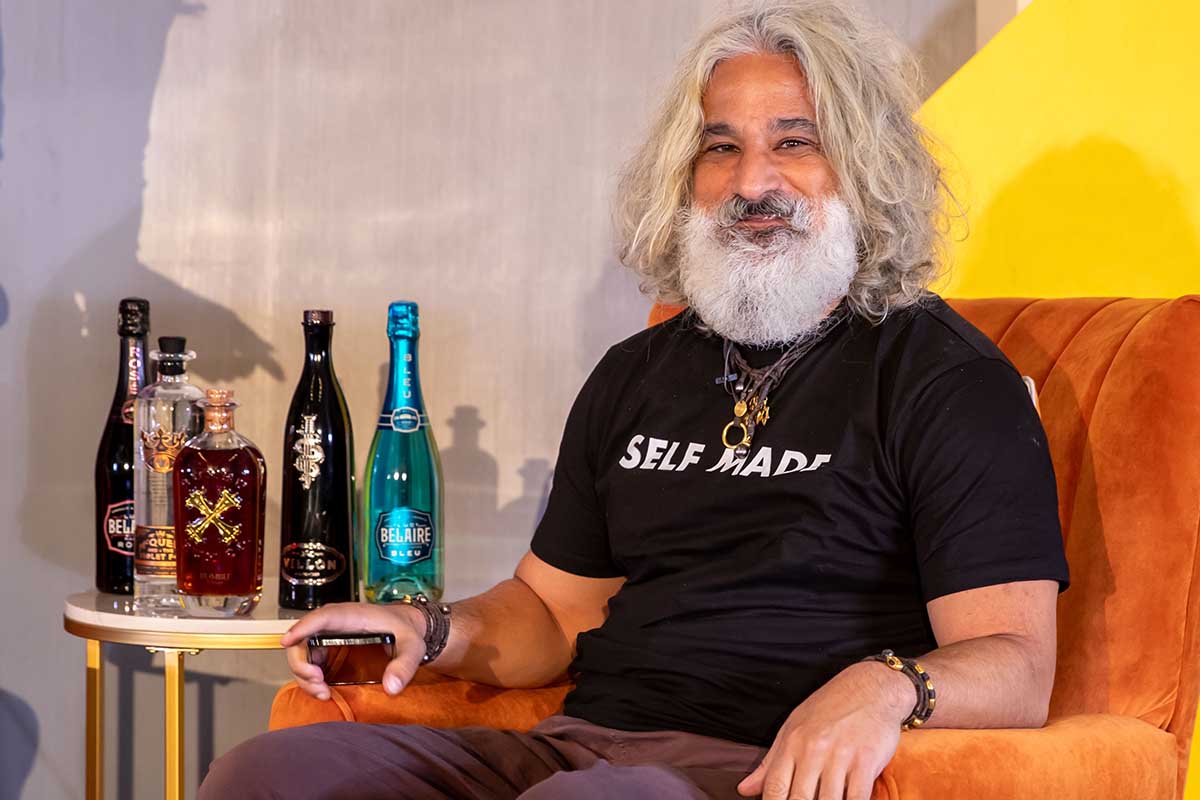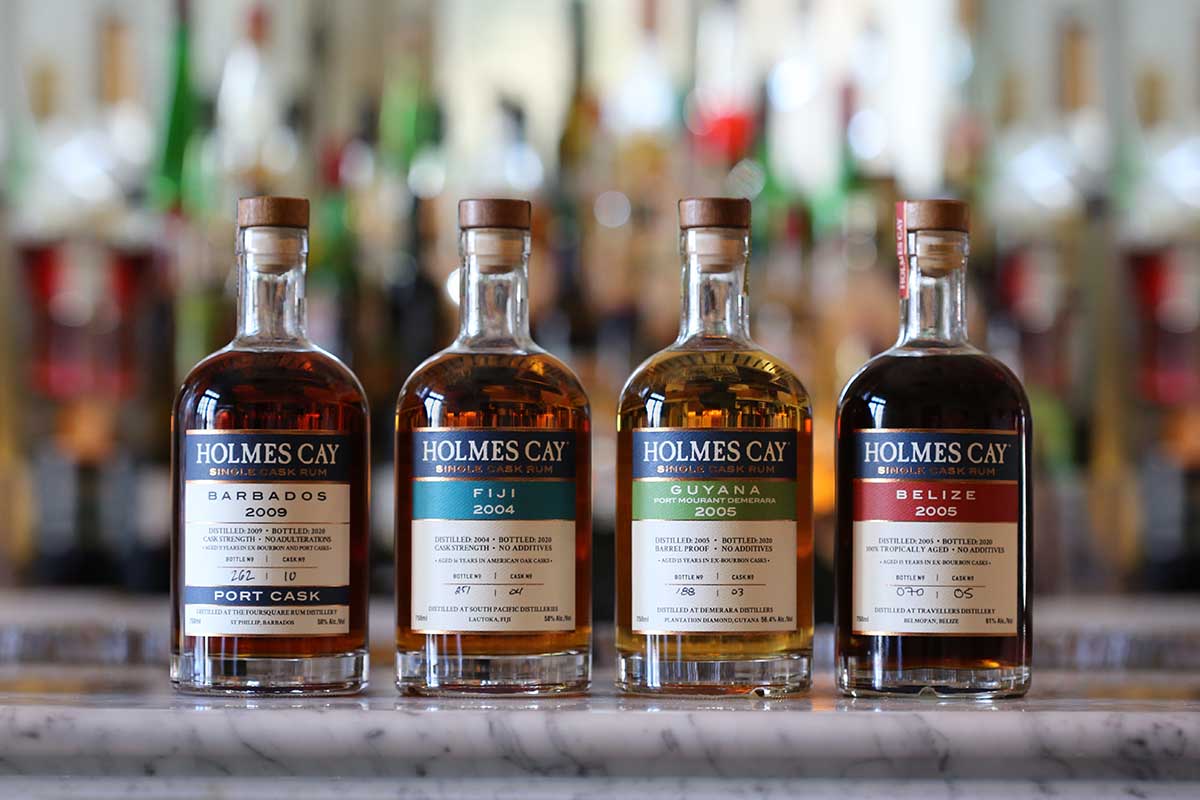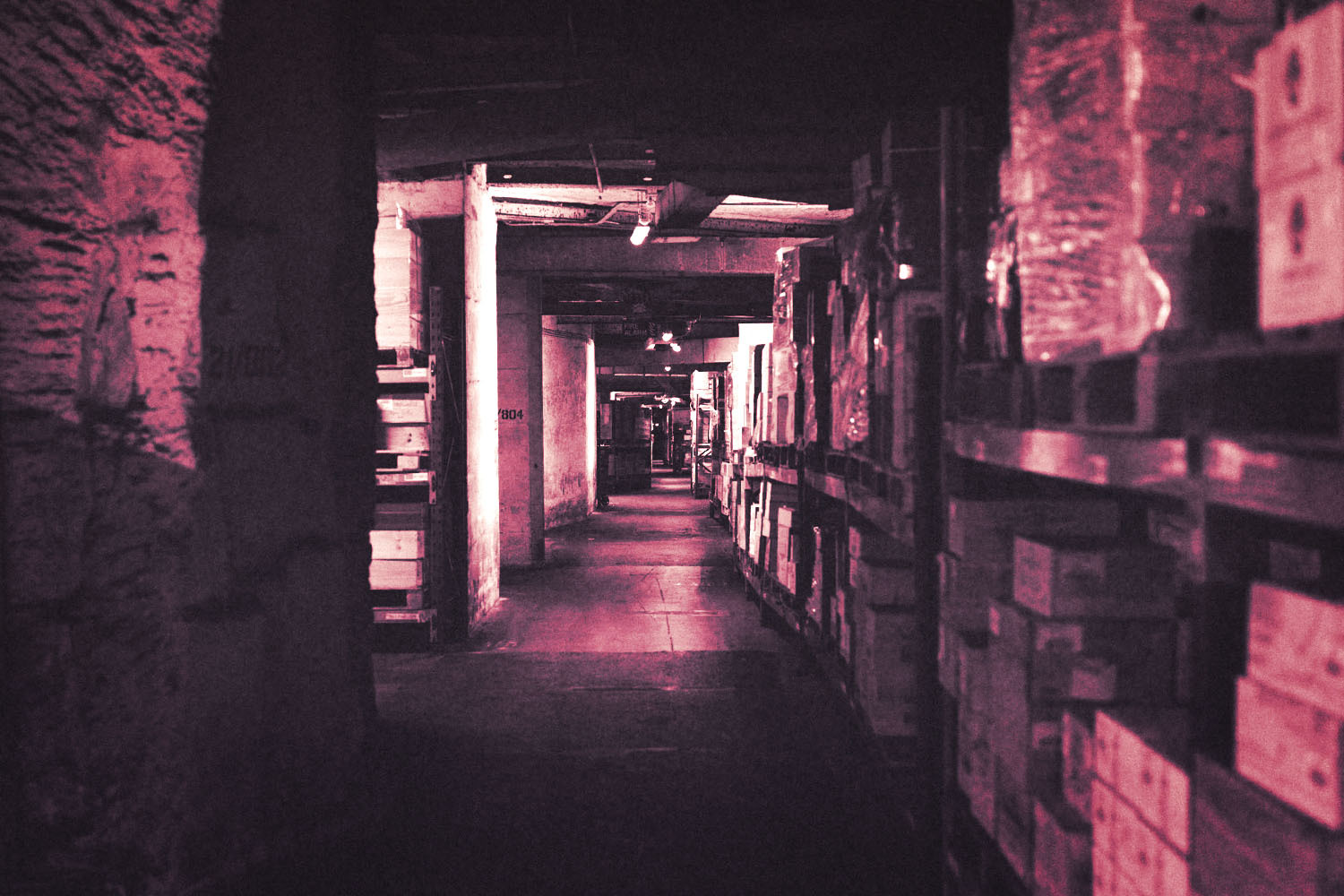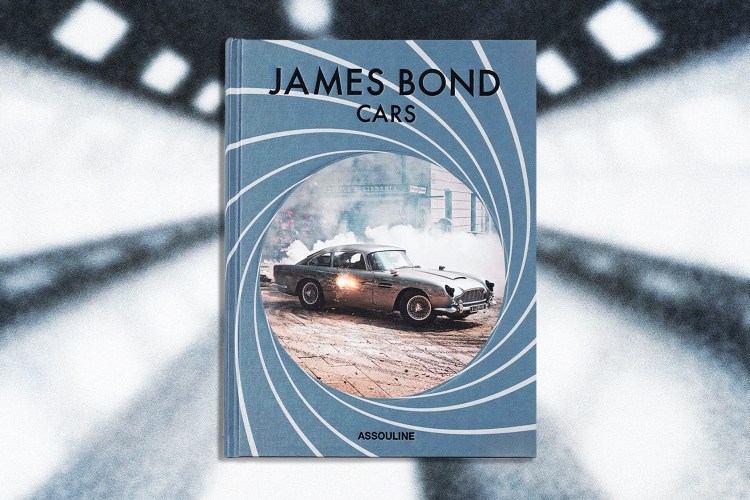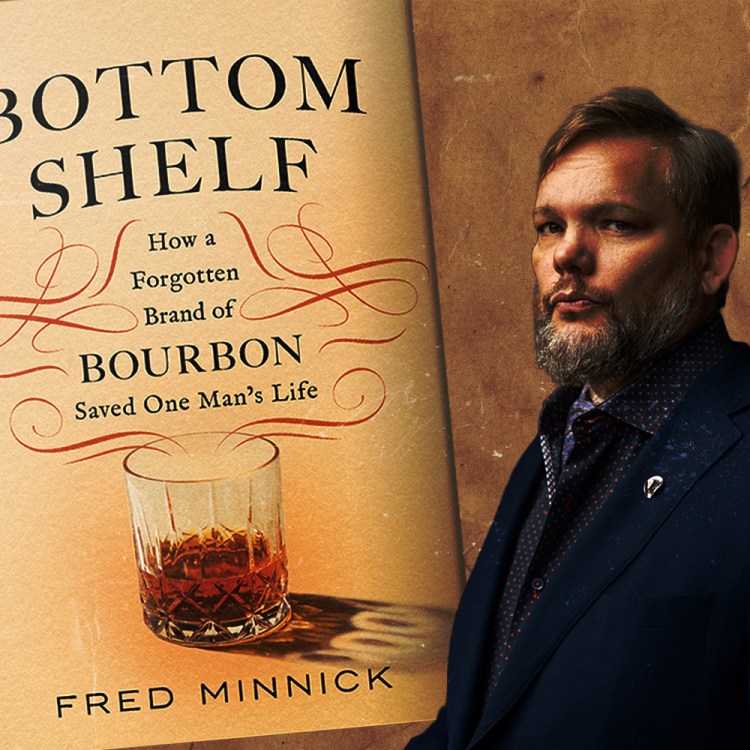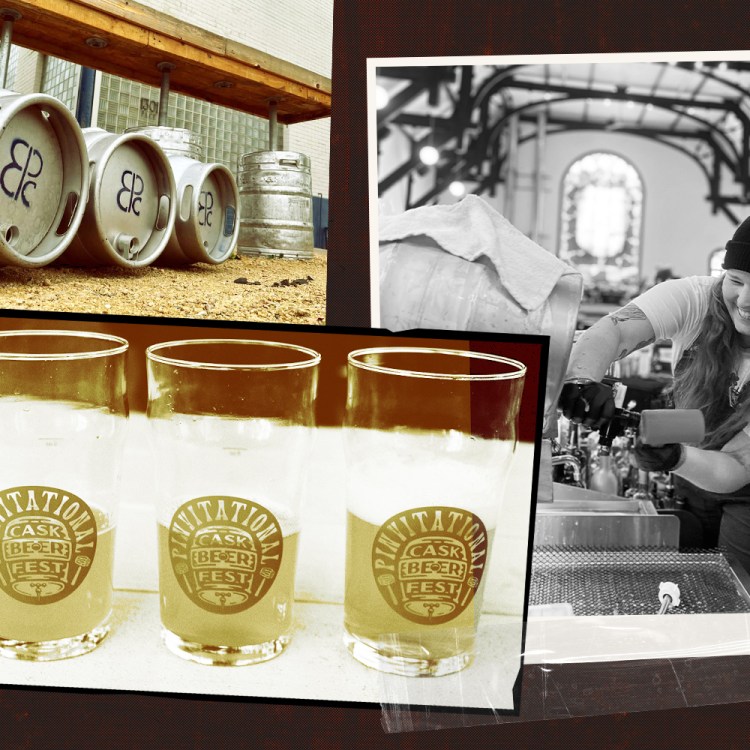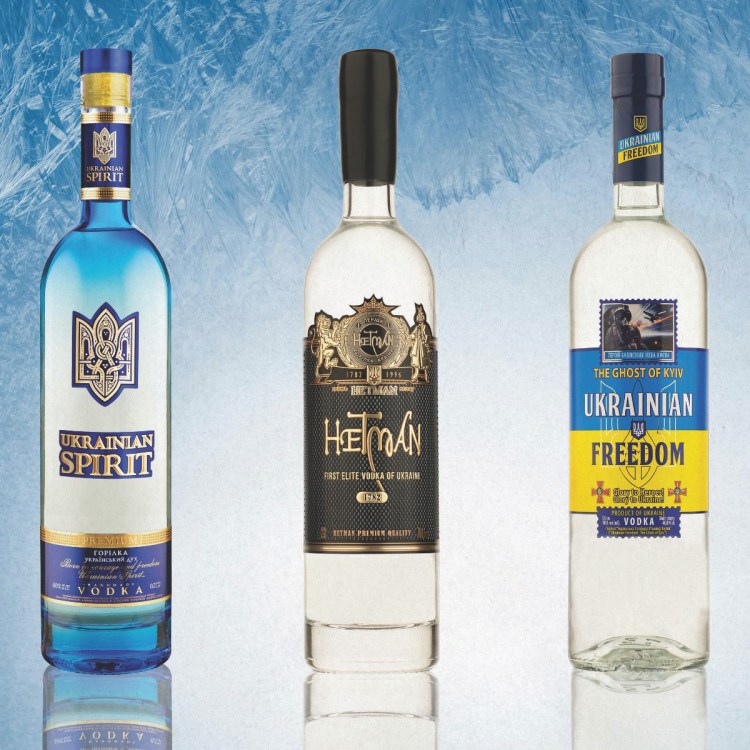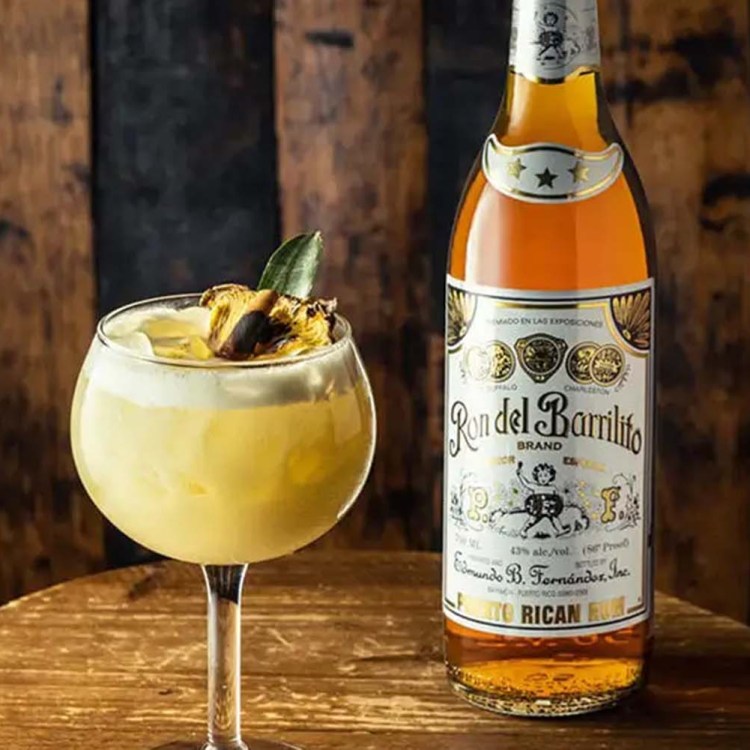“The one thing all my brands have in common is that people told me they wouldn’t work because they’re different.”
Brett Berish is an iconoclast in the drinks world. The distinctive and sometimes polarizing wines and spirits he’s helped create and market under the umbrella of Sovereign Brands are purposely untraditional. These drinks — which range from a blue sparkling wine from France to a Cognac-based liqueur — challenge a lot of traditional booze business notions. Sometimes they even lack a category.
And yet, they’re good. And consumers have embraced Belaire sparkling wines, Bumbu rum, Villon liqueur and the rest of the Sovereign portfolio because each bottle has a distinctive style, both on the outside and within the liquid. These drinks have particularly found a home with sports teams and within the hip-hop community (Jay-Z bought the Armand de Brignac Champagne brand from Sovereign back in 2014, and Berish has a long-running interview series online featuring interviews with everyone from Rick Ross to Lil Wayne); meanwhile, the brand’s distinctive bottles seem tailor-made for social media, where Sovereign owns a commanding presence.
Interestingly, Berish — dressed today for our interview at Sovereign’s downtown Manhattan office, on-brand, in a sweatsuit adorned with the phrase “Self Made” and a “BBB” gold chain around his neck — has a somewhat traditional drinks background. His father was a longtime CEO of Jim Beam, and his extended family is part of the Sovereign team.
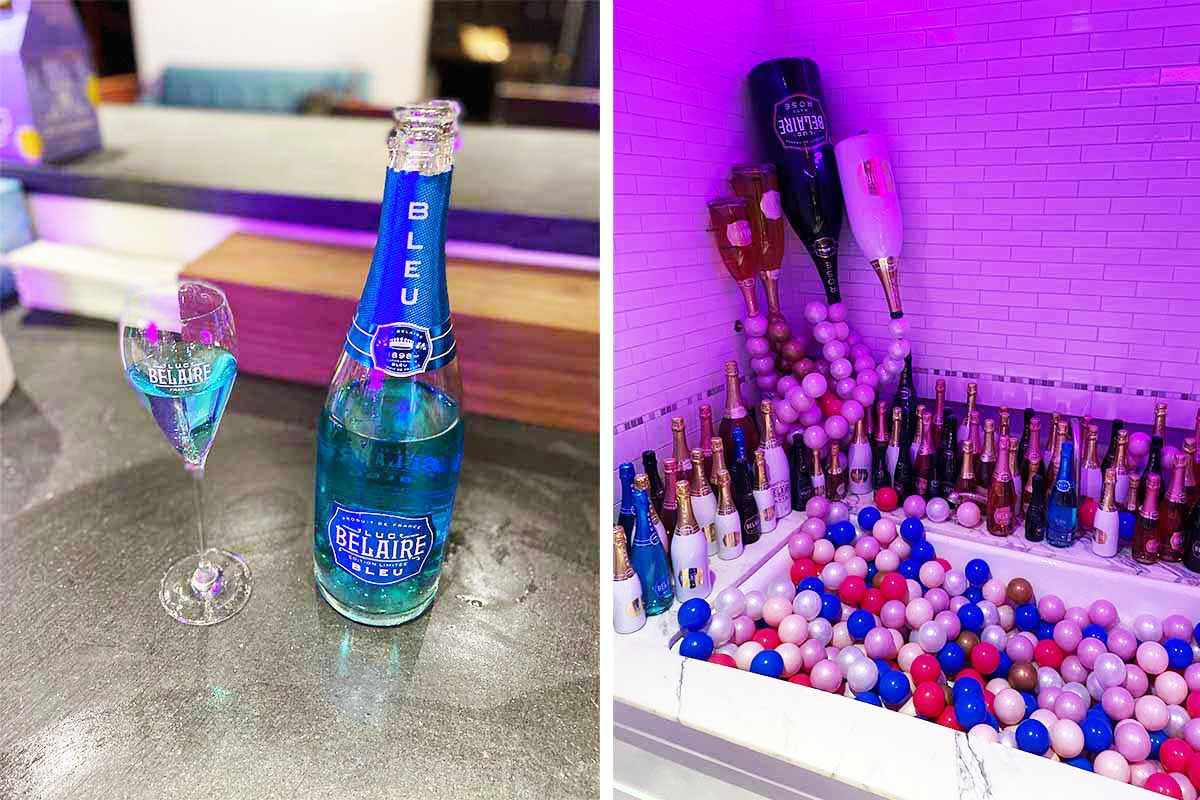
But that’s where any conventionality ends. After a tour of the Sovereign HQ — which has a bar, multiple Instagram-ready staging areas, and a bathroom with a ball pit, but no traditional desks — we sit down for a talk on ignoring trends, embracing failure and why you should say no (at least initially) to Jay-Z.
InsideHook: Your office is great. It feels more like a photo studio.
Brett Barish: It’s constantly evolving. It’s like a person, it needs to constantly evolve; you dress differently today than what you wore last year. If there’s a good new idea, I want to try it. It’s fun — I had Ari Melber from MSNBC in recently. He came in at 5, left at 2 a.m. We went to the ball pit in the back for hours, there were six of us drinking and talking.
It’s not readily apparent that this is a family business.
I started in my 30s, so I’ve been in this for about 22 years. We have three brothers, my dad as chairman, my nephew… my mother is on every single email I send out, she’s my inspiration. Yes, I’d say we own it, I don’t consider it a family business, it’s a business, we run it like a business.
My dad was in the liquor business — 45 years at Jim Beam. And your biggest knowledge base is what your parents do. In my case, my dad had no hobbies, he just loved, loved, loved to talk about the booze industry. I always wanted to be in this business, but my dad didn’t want us to. I finally made a decision in my 30s to jump in. Before that, I worked for a boutique investment bank, then quit my job and moved to Taiwan to study Chinese — no idea why. Lived in Asia for five years, got back into banking, then later started the company.
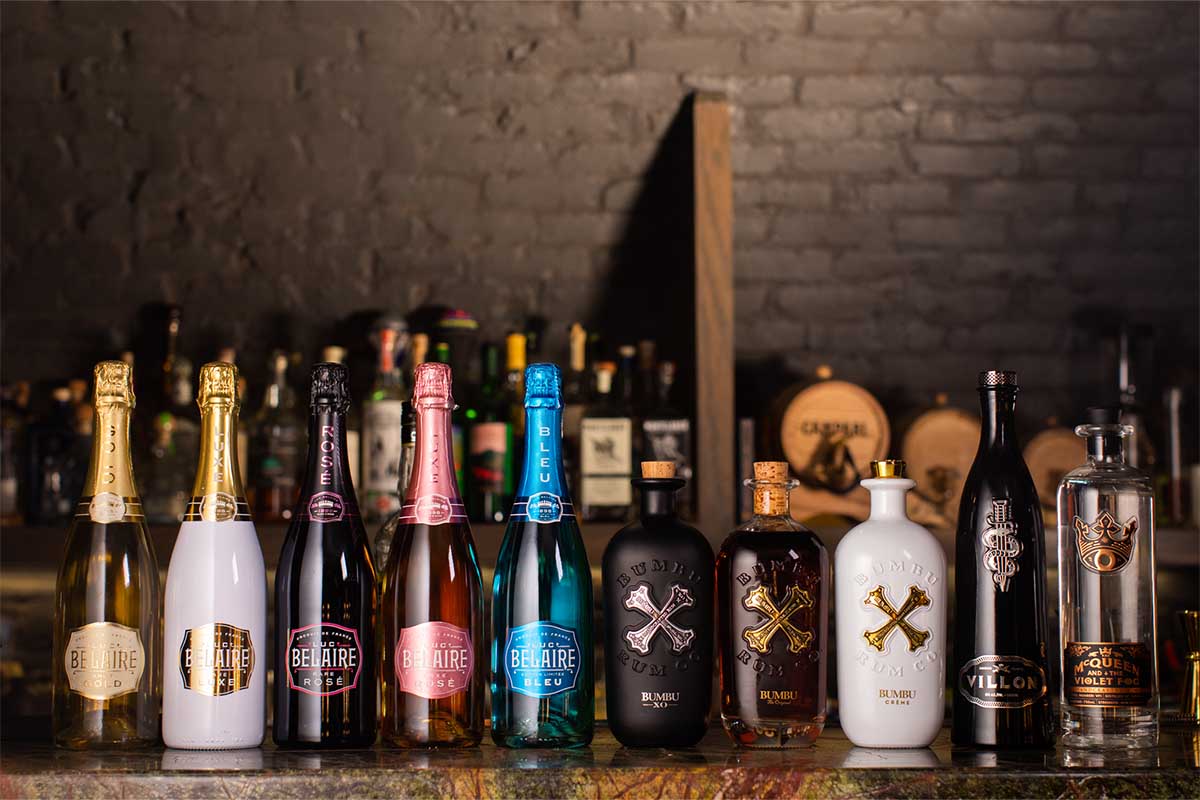
Your first release, 3 Vodka, didn’t succeed.
I like to say my first brand is the most successful — because of that brand, my other brands work today. You’re constantly going to make mistakes; you need to pivot quickly, and my mistake back then was I didn’t pivot quickly. I have to trust my instincts. I can listen to people, but if anyone’s going to screw up, I want it to be me.
When I first started… for example, with Belaire, my distributors told me I was nuts to launch a rosé first. “You have to do a brut, and don’t put it in a black bottle, your pricing is wrong.” And now, no, I gotta trust my instincts. It’s hard to do — some people are good at it, but I had to learn it.
You work with a lot of hip-hop personalities. And Jay-Z even bought one of your brands.
I love hip-hop. I’m a huge fan of the artists themselves; it’s always an individual. That person has to go do it and put themselves out there, and I’m a fan of that.
It goes back to when I started, I had to find my comfort zone — and my comfort zone is getting to know people, organically. If we see eye to eye, and I consider you my friend, I want to do something with you. That’s how I do business. I don’t want it to be transactional.
Whether it’s Jay or Rick Ross or Lil Wayne or DJ Khaled, I’ve met everyone because of the brands. They heard about the brands, they like the brands, they come in. With Rick Ross, it was two years before I met him and while he was supporting our brands. With Jay, he heard about Ace of Spades, and his team wanted a bottle. I said no — everyone’s giving things away, you have to respect the brand — but I’ll show you the bottle, not give it to you. He loved it.
You have a long-running interview series (Self Made) where you’re talking to all these A-level musicians and entertainers. What’s the origin of that?
I wanted to figure out who we are and what we stand for. If you go on our Instagram, people are always holding our bottles like a trophy, like they’re saying, “I’ve achieved something.” That’s what it feels like, for me, about success — what motivates me is the crap people went through to reach success. My first six-seven years in this business sucked — from issues with the IRS because I stopped paying taxes, getting foreclosed on, whatever, because I put all my money into the business. And I wanna hear the crap other successful people went through. Hearing just about their success is not motivating, at least for me.
How do you end up coming out with a blue sparkling wine? What’s the process there — does it start with that idea, or the liquid, or the design?
I’ll use a music analogy. A musician may have a hook or beat, something inspires them, and they hold on to that. Something’s there. That’s what it is for us — maybe it’s the liquid that turns into an inspiration for the rest of the brand. Maybe it’s a bottle I saw or a design idea I had. I hold on to it, it’s like a story. Whatever it is, I wanna make things that are iconic — the whole identity is how it looks and feel.
With Belaire, we talked about doing something like this years ago. And the majority of people didn’t like it. But I just trust myself. I said, I wanna try this. The taste was amazing; I want the cuveés to taste different because it’s no fun otherwise. And I want a visceral reaction. So we came up with the taste — amazing — And then we came up with the color. I wanted something that looked good both in the bottle and in a glass, which is hard. We came up with this wicked color, it’s drastically different, nothing like it. But we didn’t do it. Then a year and a half ago, I decided we have to try it, we launched it, the single hottest sparkling wine in the country. The Rams had it when they won the Super Bowl. And all these other teams were drinking it: the Patriots, Golden State Warriors, the Cubs. I want the brands to be part of the culture. We’re not the sponsors, but the players want this, that’s a sign. It comes back to the idea that this is a trophy.
Sovereign isn’t in many traditional liquor categories. Is that on purpose?
Whiskey, we know better than anyone. I grew up with that, but unless I have a product that I can compare against X, Y, Z and do better or something different, I don’t wanna try it. I don’t want to throw things out there. We’re gonna do other categories.
So how do you come up with something like Villon, which doesn’t seem to fit in any specific category?
Villon falls into two categories I wanted to be in: Cognac and liqueur. It gets back to doing something different; to me, it’s really hard to tell the difference in every brand out there. And I wanted something you could drink alone or mix, and I now I get the best of both worlds. It’s named after a 14th-century poet who went against the grain and fought against bad people; he did things differently. For us, it’s about educating the market, and explaining why this is a better product, it tastes better, it’s cool, it’s a better price point, it’s got emotion and feeling. It’s not from a giant company where it’s all about the numbers.
How do other drinks brands or drinks professionals see you?
What I learned early on, I can’t be like anyone else. Eventually, I’ll get ‘em, they’re supportive because the consumer is the decision-maker. If they like it, it’s going to work.
What about the market now intrigues you or scares you?
When things are hot, if anything, I run away. I don’t want to do RTDs. And it feels like tequila has so many brands, so many celebrity brands. If anything is hot, and everyone jumps in, I don’t want to do it.
How important is social media to what you do?
Social media is great. These are your fans. They’ll tell you what you’re good and not good at. Bumbu, our rum, has more followers on Instagram than any other rum brand in the world. That says we’re connecting. Belaire, we have 1.5 million followers; we’re connecting.
We’re a tiny company. Diageo probably has more people in Nevada than we have in our company. But Belaire is about to become the single biggest sparkling wine in the country, Bumbu is the number one premium rum in the U.S. We’re doing something right.
Every Thursday, our resident experts see to it that you’re up to date on the latest from the world of drinks. Trend reports, bottle reviews, cocktail recipes and more. Sign up for THE SPILL now.
